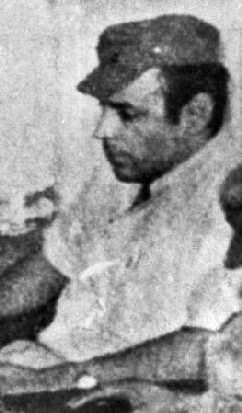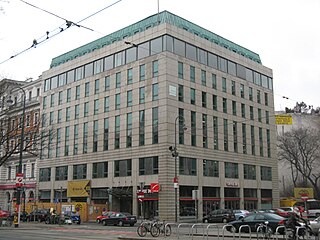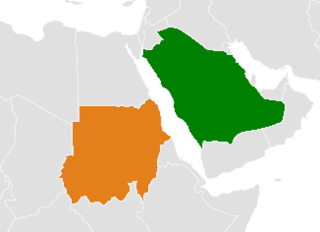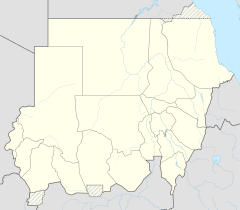
The Abu Nidal Organization, officially Fatah – Revolutionary Council, was a Palestinian militant group founded by Abu Nidal in 1974. It broke away from Fatah, a faction within the Palestine Liberation Organization, following the emergence of a rift between Abu Nidal and Yasser Arafat. The ANO was designated as a terrorist organization by Israel, the United States, the United Kingdom, Canada, the European Union and Japan. However, a number of Arab countries supported the group's activities; it was backed by Iraq from 1974 to 1983, by Syria from 1983 to 1987, and by Libya from 1987 to 1997. It briefly cooperated with Egypt from 1997 to 1998, but ultimately returned to Iraq in December 1998, where it continued to have the state's backing until Abu Nidal's death in August 2002.

Khartoum or Khartum is the capital city of Sudan. With a population of 6,344,348, Khartoum's metropolitan area is the largest in Sudan.
The Black September Organization (BSO) was a Palestinian militant organization founded in 1970. Besides other actions, the group was responsible for the assassination of the Jordanian Prime Minister Wasfi Tal, and the Munich massacre, in which eleven Israeli athletes and officials were kidnapped and killed, as well as a West German policeman dying, during the 1972 Summer Olympics in Munich, their most publicized event. These attacks led to the creation or specialization of permanent counter-terrorism forces in many European countries.

Sabri Khalil al-Banna, known by his nom de guerreAbu Nidal, was a Palestinian militant. He was the founder of Fatah: The Revolutionary Council, a militant Palestinian splinter group more commonly known as the Abu Nidal Organization (ANO). Abu Nidal formed the ANO in October 1974 after splitting from Yasser Arafat's Fatah faction within the Palestine Liberation Organization (PLO).
Cleo Allen Noel Jr. was a United States ambassador to Sudan who was murdered by the Black September Palestinian organization organization in the 1973 attack on the Saudi embassy in Khartoum.

Terrorism in Saudi Arabia has mainly been attributed to Islamic extremists. Their targets included foreign civilians—Westerners affiliated with its oil-based economy—as well as Saudi Arabian civilians and security forces. Anti-Western attacks have occurred in Saudi Arabia dating back to 1995. Saudi Arabia itself has been accused of funding terrorism in other countries, including Syria.

George Curtis Moore was an American diplomat who was assassinated during a terrorist attack on the Saudi embassy in Khartoum, Sudan.

The West German Embassy siege in Stockholm, Sweden, was a hostage standoff initiated by the Red Army Faction (RAF) on 24 April 1975. Collectively, the attackers referred to themselves as Kommando Holger Meins, after Holger Meins, an RAF member who had died of starvation during a (collective) hunger strike in Wittlich Prison on 9 November 1974.

The Revolutionary Cells were a self-described "urban guerrilla" organisation that was active between 1973 and 1995. The West German Interior Ministry described it as one of West Germany's most dangerous leftist terrorist groups in the early 1980s. According to the office of the German Federal Prosecutor, the Revolutionary Cells claimed responsibility for 186 attacks, of which 40 were committed in West Berlin.
John M. Granville was an American diplomat who worked in Southern Sudan. On January 1, 2008, he was assassinated in a shooting in Khartoum, Sudan.

Sudan–United States relations are the bilateral relations between Sudan and the United States. The United States government has been critical of Sudan's human rights record and has dispatched a strong UN Peacekeeping force to Darfur. Relations between both countries in recent years have greatly improved, with Sudan's post-revolutionary government compensating American victims of al-Qaeda terror attacks, the removal of Sudan from the State Department's blacklist of state sponsors of terrorism and the United States Congress having reinstated Sudan's sovereign immunity in December 2020.

The Israeli Bangkok embassy hostage crisis occurred on 28 December 1972. It was a raid by a squad of four Palestinian militants, belonging to the Black September organization, on the Israeli embassy building in Bangkok in which the militants held six Israeli embassy staff hostage. After 19 hours of negotiations, the hijackers agreed to abandon the embassy in exchange for being flown to Egypt. The raid was one of a number of attacks that have been conducted against Israeli embassies and diplomats.

Iran–Sudan relations refers to diplomatic, economic and military relations between Sudan and Iran. For nearly three decades, Iran and Sudan enjoyed a close relationship.

On 21 December 1975, six terrorists attacked the semi-annual meeting of OPEC leaders in Vienna, Austria; the attackers took more than 60 hostages after killing an Austrian policeman, an Iraqi OPEC security officer, and a Libyan economist. Several other individuals were wounded. The self-named "Arm of the Arab Revolution" group was led by Carlos the Jackal. The siege resulted in complex diplomatic negotiations. It ended two days later, after flights to Algiers and Tripoli, with all the hostages and terrorists walking away from the situation. The fact that this was one of the first times that Arab states were targeted by terrorists also led to them being more cooperative in developing antiterrorism efforts at the United Nations.

Saudi Arabia–Sudan relations is the relationship between Saudi Arabia and Sudan.
Republic of Sudan v. Harrison, 587 U.S. ___ (2019), was a United States Supreme Court case from the October 2018 term. The Court held that civil service of a lawsuit against the government of Sudan was invalid because the civil complaints and summons had been sent to the Embassy of Sudan in Washington, D.C. rather than to the Sudanese Foreign Minister in Khartoum.

Brian Wesley Shukan is a career member of the Senior Foreign Service who is serving as the United States ambassador to Benin. He previously served as the U.S. chief of mission in Khartoum from October 2019 to January 2022.
The 1973 Hellinikon International Airport attack was an attack at the Hellinikon International Airport at Athens, Greece. The two attackers were members of the Palestinian militant organization Black September. The militants used sub-machine guns and grenades against the passengers waiting in the passenger lounge. The attackers took hostages before they finally surrendered to the Greek police. It is believed that the gunmen wanted to hijack a plane, but they decided to attack when they were about to be searched by a Greek security inspector before boarding.













